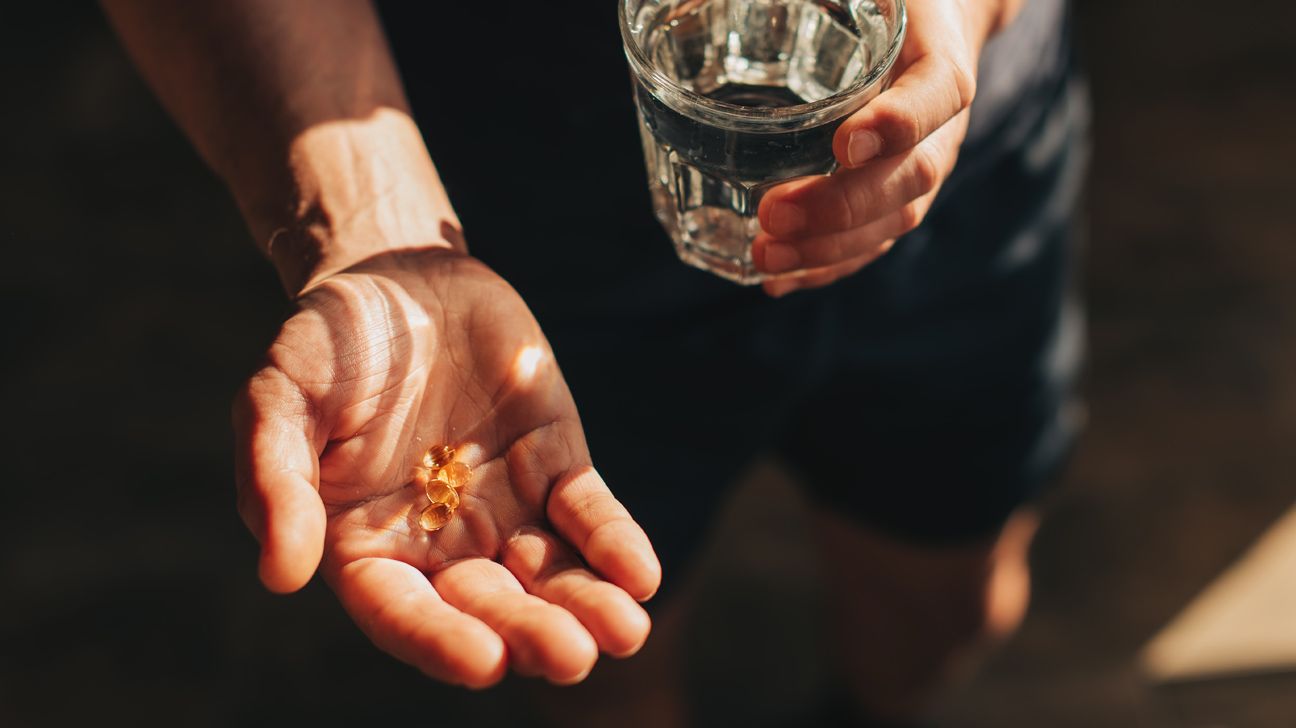
- A new study found that nicotinamide (vitamin B3) use was linked to fewer cases of non-melanoma skin cancers.
- The supplement was tied to a 14% reduction in future skin cancers, with the greatest benefit in people who started taking it after their first diagnosis.
- The findings build on a small clinical trial that showed nicotinamide could lower the risk of new skin cancers.
- Experts say nicotinamide may be a helpful add-on, but sunscreen, protective clothing, and regular skin checks remain the best preventive measures.
A common vitamin supplement could play an even bigger role in skin cancer prevention than we once thought.
A new study published on September 17 in
Meanwhile, the biggest benefit was seen in people who started taking nicotinamide after their first skin cancer diagnosis. Their risk of developing another dropped by more than half.
While the protective effect wasn’t as strong in people who began taking nicotinamide after multiple cancers, the findings add weight to growing evidence that this low-cost and widely available supplement may be a helpful tool in skin cancer prevention.
A
This larger study validates those earlier findings by examining real-world data from tens of thousands of patients, offering stronger evidence of nicotinamide’s protective effect against skin cancer.
Hannah Kopelman, MD, dermatologist at Kopelman Aesthetic Surgery, told Healthline this research is “confirmatory evidence” that nicotinamide can reduce future keratinocyte skin cancers, especially squamous cell carcinoma, when started soon after a first cancer.
“This study builds on earlier randomized trials and makes me more comfortable recommending it to the right patients in my own practice,” she said.
Kopelman explained why nicotinamide appears to have a protective mechanism when it comes to skin cancer.
“Nicotinamide replenishes energy stores in the skin cells so they can repair DNA damage from UV exposure more efficiently,” she said.
“It also helps preserve local immune surveillance in the skin, which UV light can suppress,” she added.
“Together, these effects mean fewer UV-damaged cells are able to survive, accumulate mutations, and progress into skin cancers.”
Anna Andrienko, a dermatologist and aesthetic doctor at Dr. Ducu Clinics, said nicotinamide is a precursor to NAD+, a cellular cofactor that’s involved in DNA repair and cellular energy metabolism.
“UV radiation causes DNA damage and depletes cellular NAD+ and ATP reserves, but nicotinamide helps restore these energy stores and boosts the efficiency of DNA repair processes in UV-damaged skin cells,” she explained.
“It also has anti-inflammatory effects, which can reduce the pro-tumour environment created by chronic UV injury.”
Together, Andrienko said these actions make nicotinamide “biologically plausible as a chemopreventive agent for UV-related skin cancers.”
While the new study’s findings show promise for the protective effects of nicotinamide against certain types of skin cancer, there are a few important caveats.
“This was a retrospective study, Kopelman noted. “This means there are confounding factors we can’t completely control, like sun habits, adherence, and the intensity of dermatology follow-up.”
“The population was also older and mostly male, which limits how widely we can apply the findings. And in certain groups, like solid-organ transplant patients, the benefit was not as clear,” she added.
Andrienko said the exposure measurement in this study relied on prescriptions and records rather than direct adherence monitoring, and the timing of when nicotinamide was started relative to UV exposure varies.
“These limitations mean the results should be interpreted as strong, suggestive evidence rather than definitive proof,” she explained.
Vitamin B3 should be viewed as an adjunct, not a replacement, for sunscreen and sun-protective behavior, Andrienko said.
“Sunscreen, protective clothing, and regular skin checks address the root exposure to UV and early detection, and they remain the cornerstone of prevention,” she explained.
“Nicotinamide may add an internal layer of protection by improving DNA repair and reducing inflammation, which is valuable especially for people at higher risk or with prior skin cancers.”
Andrenko advised thinking of nicotinamide as a complementary tool to use alongside, not instead of, the established measures.
As for nicotinamide’s effectiveness, Kopelman said it depends on the patient’s individual risk factors and health status.
“In people who are immunocompetent and high risk, particularly those who have already had a skin cancer, I do think nicotinamide can make a real difference if taken consistently at the studied dose of 500 milligrams twice daily,” she said.
“The key is that patients need to actually take it regularly and continue all the other preventive strategies.
“In immunosuppressed patients, like transplant recipients, the evidence is more mixed, and I’m more cautious in how I present its potential benefits,” she added.
Nicotinamide is a promising adjunctive preventive option, but following proven skin cancer prevention habits is key.
“My first-line recommendations are always daily broad-spectrum sunscreen, protective clothing like hats and UPF-rated shirts, and avoiding peak sun hours,” said Kopelman.
Andrienko agreed. “Use SPF 30 or higher daily, apply it generously, and reapply it every two hours when outdoors,” she advised.
“During peak hours, make sure you’re wearing sun-protective clothing, like wide-brimmed hats and UV-blocking sunglasses. You’ll also want to avoid intentional tanning and limit your time in direct sunlight,” she added.
Checking for signs of skin damage is one of the most proactive skin cancer prevention habits you can complete.
Andrienko recommends performing regular self-checks of your skin and seeing a dermatologist promptly if you notice any new, changing, or symptomatic spots. “Early detection matters,” she said.
For those with a history of skin cancer, Andrienko recommended talking with your doctor to go over any current risks, medications, and individual factors. A healthcare professional can help determine whether 500 mg of nicotinamide twice daily is right for you.
While nicotinamide shows promise, sunscreen, protective clothing, and regular skin checks remain the best strategies for preventing skin cancer.


